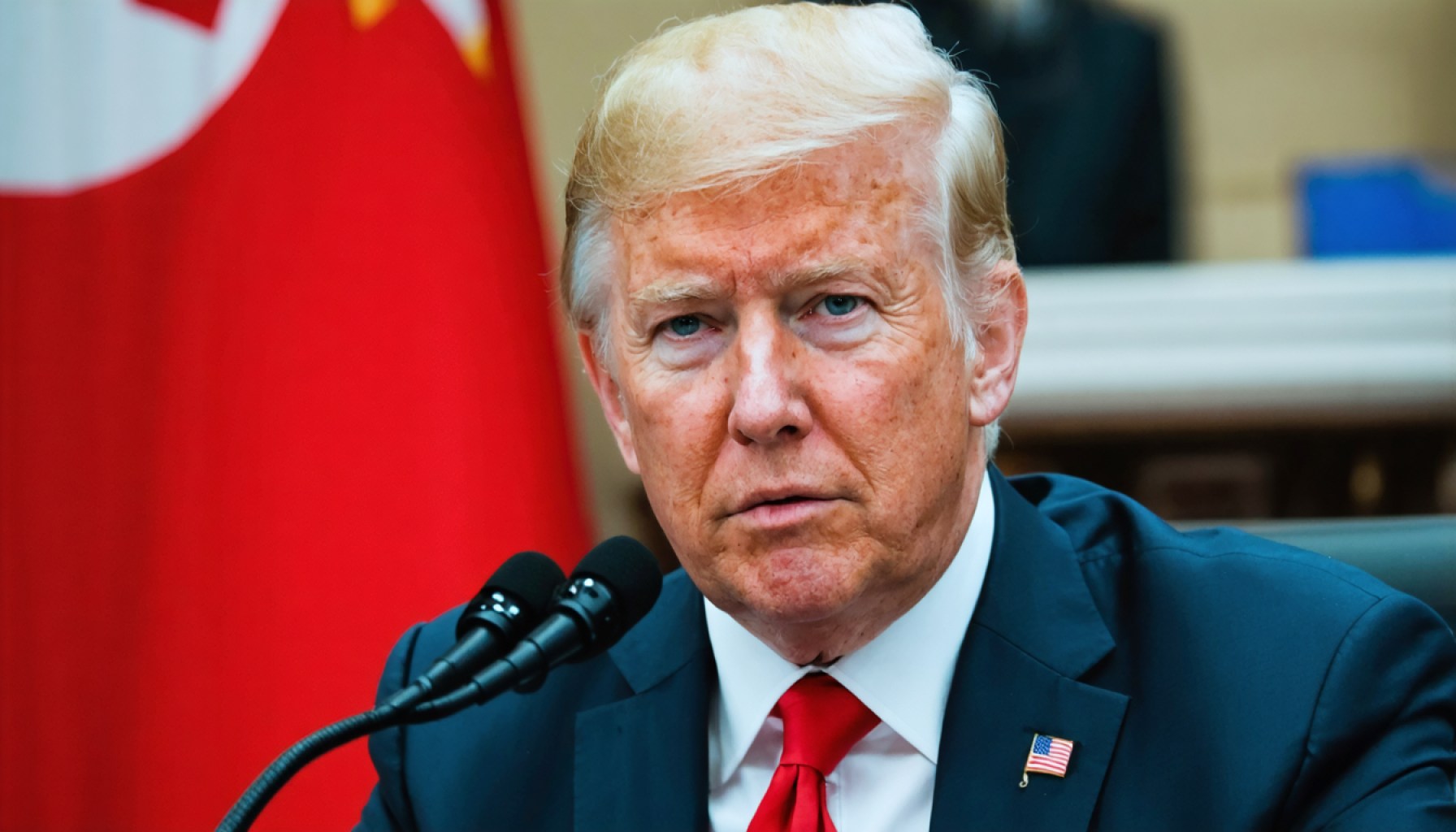
This image was generated using artificial intelligence. It does not depict a real situation and is not official material from any brand or person. If you feel that a photo is inappropriate and we should change it please contact us.
Vice President’s Surprising Accusations Spark Controversy amid Crucial Peace Talks
- The Vice President of the United States sparked controversy by accusing a critic of “moralistic garbage” and “historical illiteracy.”
- President Donald Trump’s efforts to reduce the war in Ukraine have led to complex negotiations, with direct engagement with Russian President Vladimir Putin.
- Recent diplomatic missteps have caused concern among observers of the geopolitical situation.
- The U.S. Defense Secretary suggested that Ukraine’s future with NATO remains uncertain, sparking unease among allies.
- The situation underscores the necessity for nuanced, inclusive dialogue over unilateral solutions in resolving the conflict.
- The broader message emphasizes the importance of diplomacy, as words shape the future of international relations.
The air in Washington feels thicker these days, as unexpected commotion brews within halls echoing power and diplomacy. Accusations from the Vice President of the United States ignited an unexpected controversy, labeling a prominent critic as someone peddling “moralistic garbage” and showing “historical illiteracy.” Such harsh words unfolded a peculiar drama against the backdrop of President Donald Trump’s latest attempts to curtail the ongoing war in Ukraine.
Recent negotiations have veered onto a precarious path. Trump’s strategic maneuvers, including engaging directly with Russian President Vladimir Putin, aim to bring stability where the battlefield threatened endless chaos. Despite noble intentions, diplomatic missteps raised eyebrows this past week, particularly among those closely watching the geopolitical chess game.
In early February, the atmosphere at the NATO meeting in Brussels became tense. The U.S. Defense Secretary, with unexpected candor, posited a future where Ukraine’s borders remain scarred by past intrusions and its journey into NATO remains a dream deferred. Such pronouncements cast unease among allies, provoking contemplation about America’s commitment and the emerging shape of Eastern Europe’s landscape post-conflict.
Ironically, these revelations unveiled a message echoing through strategic forums: This conflict demands a nuanced, inclusive dialogue rather than one-sided resolutions. As global eyes fixate on diplomatic tables rather than armed reigns, the trumpet call of peace carries a crucial reminder—that resolution often requires navigating tempests of disagreement with delicate precision.
In the symphony of international relations, the current crescendo reminds us that sometimes words wield a power beyond mere sound, shaping futures yet to be written.
Who’s Really Winning the Diplomatic Chess in Eastern Europe?
How-To Steps & Life Hacks for Understanding Geopolitical Negotiations
1. Stay Informed: Follow reputable news sources, such as BBC or Reuters, to remain updated on developments.
2. Understand Key Players: Get to know the central figures involved in negotiations—leaders of the U.S., Russia, and Ukraine, as well as NATO members.
3. Analyze Historical Context: Delve into the historical complexities of Ukraine-Russia relations to understand current tensions.
4. Engage in Discussions: Participate in forums or discussions to gain multiple perspectives on the topic.
5. Academic Resources: Explore academic journals or titles in international relations for deeper insights.
Market Forecasts & Industry Trends
In the realm of defense and cybersecurity, market trends indicate an increase in spending as nations bolster defenses amidst geopolitical tensions. A report by the Stockholm International Peace Research Institute notes surging defense budgets, particularly within NATO countries, due to perceived threats from Russian activities in Ukraine.
Reviews & Comparisons: Diplomatic Approaches
1. The Trump Approach: Direct engagement strategies with Russia, emphasizing diplomacy first but raising concerns over effectiveness and moral implications.
2. NATO’s Role: Relies on collective security and economic sanctions against aggressors, thereby showing unity yet occasionally suffering from internal disagreements on strategy.
3. EU Mediation: The EU often takes a more procedural and bureaucratic approach, sometimes seen as slower but thorough in resolution efforts.
Controversies & Limitations
– Moral and Ethical Criticism: Strategic deals with controversial figures like Putin have raised ethical debates about compromising values for diplomatic objectives.
– Historical Illiteracy Accusations: Ignoring historical grievances or context can lead to underestimating certain nations’ positions.
Security & Sustainability Insights
The ongoing Ukraine conflict highlights the importance of cybersecurity. Nations should prioritize investments in digital infrastructure to shield against potential cyber warfare. McKinsey reports that the intersection of defense spending and tech innovation will significantly impact national security strategies.
Pros & Cons Overview
Pros:
– Direct diplomacy can quickly de-escalate tensions.
– Raises global attention towards peaceful resolutions.
Cons:
– Risks sidelining smaller nations’ interests.
– Potentially undermines alliances by prioritizing bilateral talks over multilateral consensus.
Actionable Recommendations
1. Enhanced Dialogue: Encourage diplomatic talks that involve all stakeholders, ensuring a more comprehensive and inclusive peace process.
2. Cybersecurity Investments: Strengthen resilience against cyber threats in tandem with physical defense measures.
3. Educational Workshops: Spread awareness of geopolitical literacy to foster informed public discourse.
4. Promote Academic Visits: Encourage policymakers to engage with historical experts and cultural mediators to reduce historical misunderstandings.
By understanding the broader implications of the current diplomatic scene, individuals and policymakers can make informed decisions that may contribute to lasting peace. Stay vigilant and communicative, appreciating the power of diplomacy in shaping a more stable world landscape.
For more insights on international relations and geopolitical strategies, visit NATO or BBC.